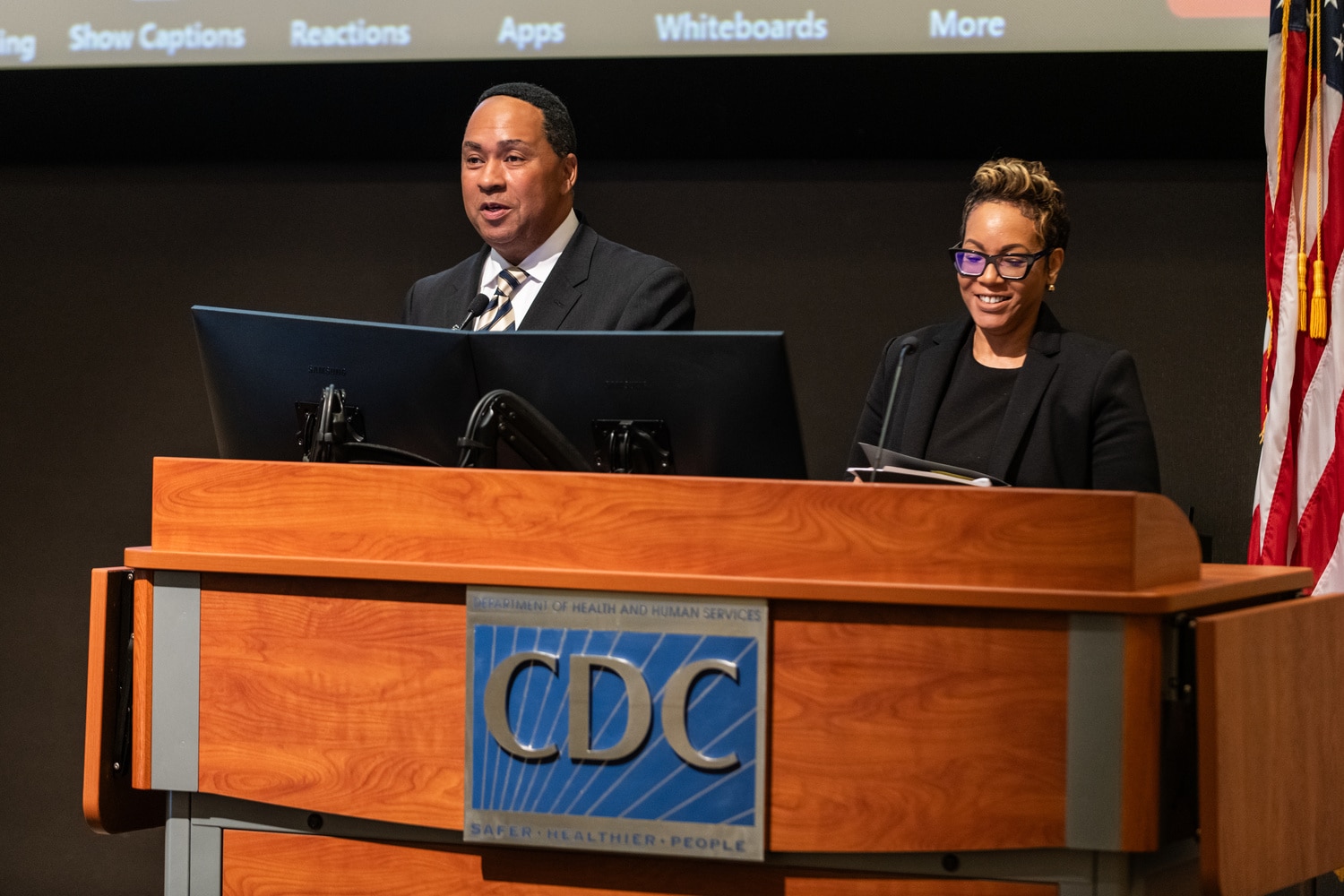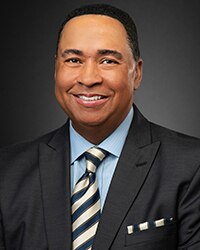Summary:

A Message from the Director of the Office of Equal Employment Opportunity and Workplace Equity (OEEOWE) at the Centers for Disease Control and Prevention.
 Growing up during the Civil Rights Movement in the 1960s, I witnessed firsthand the civil unrest in Memphis, Tennessee. My uncle, a sanitation worker, joined the 1968 Sanitation Workers’ Strike to demand better working conditions and higher wages after two colleagues were killed by a malfunctioning garbage truck. Nonviolent protestors held signs declaring “I Am A Man,” insisting that Black sanitation workers be treated with dignity and respect. This powerful demonstration was one of my first exposures to the intersecting societal issues of race and class and the fight for equality and justice.
Growing up during the Civil Rights Movement in the 1960s, I witnessed firsthand the civil unrest in Memphis, Tennessee. My uncle, a sanitation worker, joined the 1968 Sanitation Workers’ Strike to demand better working conditions and higher wages after two colleagues were killed by a malfunctioning garbage truck. Nonviolent protestors held signs declaring “I Am A Man,” insisting that Black sanitation workers be treated with dignity and respect. This powerful demonstration was one of my first exposures to the intersecting societal issues of race and class and the fight for equality and justice.
My family, who followed Dr. Martin Luther King, Jr.’s principles of non-violent action, was adamant about change and sparked my desire to become a change agent. While protests unfolded, my parents instilled in me the belief that education was the key to dismantling racism and that we must lend a helping hand to all individuals, regardless of their race, class, gender, or ability. Despite a humble upbringing, I understood that I had the potential to make a difference and vowed to create a better life for others.
Today, I have the privilege of serving as the Director of the Office of Equal Employment Opportunity and Workplace Equity at the Centers for Disease Control and Prevention (CDC), where I have worked for 19 years. Our mission is to ensure an environment that promotes equal employment opportunity for all people, eradicates harassment and discrimination in all forms, and promotes an inclusive environment that empowers employees.
The importance of diversity, equity, inclusion, and accessibility (DEIA) work at HHS and CDC reflects the same values that the Sanitation Workers’ demonstrations invoked—treat all individuals with dignity and respect throughout their professional journey. We achieve this by focusing on increasing diversity within our workforce; improving retention and opportunity creation; enhancing equity, inclusion, and accessibility; reforming culture through leadership; and strengthening insights through improved data.
At CDC, I am proud of the strides we’ve made to shape an inclusive organizational culture by building and sustaining a DEIA infrastructure. Since 2010, CDC has had a diversity executive steering committee to ensure senior leaders make measurable progress toward improving diversity and inclusion in the workplace. I led OEEOWE in establishing CDC’s Diversity, Equity, and Engagement Executive Steering Committee, which oversees agency-wide commitments to fostering an inclusive, fair, and equitable work environment. This committee unites leaders of all twenty-four CDC Centers, Institute, and Offices (CIO) to champion DEIA initiatives and embed these principles at every organizational level, enabling employees to show up authentically and perform at their best. To build a robust DEIA infrastructure, CDC has established the CDC DEIA Strategic Plan, derived from the HHS DEIA Strategic Plan. Our plan has several interconnected layers that integrate DEIA into Equal Employment Opportunity (EEO) programs, policies, practices, and procedures. We have implemented a rigorous barrier analysis process, introduced assessments and scorecards to measure each CIO's DEIA progress annually, and advanced our position on the CDC DEIA Maturity Model. We have launched mentoring circles, diverse hiring panels, a robust training program, and recognized employees that promote DEIA and EEO principles with the Workplace Equity Innovation Award. We have built in fundamental DEIA principles into our operations.
CDC has made great strides in DEIA, but there is much more work to do. It is crucial that we move beyond hot topic terms like “diversity” and focus on the meaning, which is fostering engagement and equity within the communities that we serve. To engage our workforce, we need active participation from both leaders and employees at all levels. Each one of us has the power to be a change agent, regardless of our position or location within the organization. One tangible way to contribute is by participating in the Federal Employee Viewpoint Survey (FEVS) and reviewing scores. By engaging with the FEVS, we can identify areas for improvement and take action to create a more inclusive environment, where every employee feels valued, respected, empowered, and has a sense of belonging.
Furthermore, our agency must embed equity in policies, practices, and procedures, continuously examining them to ensure equity is integral to our operations. We must always strive to be better as One CDC, fulfilling our mission to protect health and improve lives.
It is crucial that we move beyond hot topic terms like “diversity” and focus on the meaning, which is fostering engagement and equity within the communities that we serve.
As my uncle and the 1968 Sanitation Workers have demonstrated to the nation, we all must be on the frontline to drive meaningful change. I call on all colleagues to actively participate in DEIA initiatives. Whether through personal involvement in DEIA committees, mentoring programs, or simply by fostering an inclusive environment in your daily interactions, your contribution is vital. Together, we can create a workplace that not only values diversity but also leverages it to achieve excellence.
It will take all of our voices to ensure that we truly embody the tenets that our nation was founded upon: liberty, social equity, and justice for all. This is a clarion call to action—make sure your voice is heard; no one has the right to remain silent!
Reginald Mebane, MS
Director, CDC Office of Equal Employment Opportunity and Workplace Equity
Department of Health and Human Services
The DEIA journey is a continuous process of learning and improvement. Committing to DEIA is not just the right thing to do—it is the smart thing to do. It makes HHS a stronger federal agency, a more effective leader and partner in advancing the health of the nation, and an attractive home for the nation’s best and brightest talent.
Leadership change stories will evolve as we collaborate across HHS and make shared progress. We will move forward with a focus on continuous improvement and addressing existing and emerging leadership needs.
For questions, resources, or additional information, please email DEIAStrategicPlan@hhs.gov.



